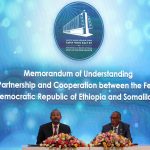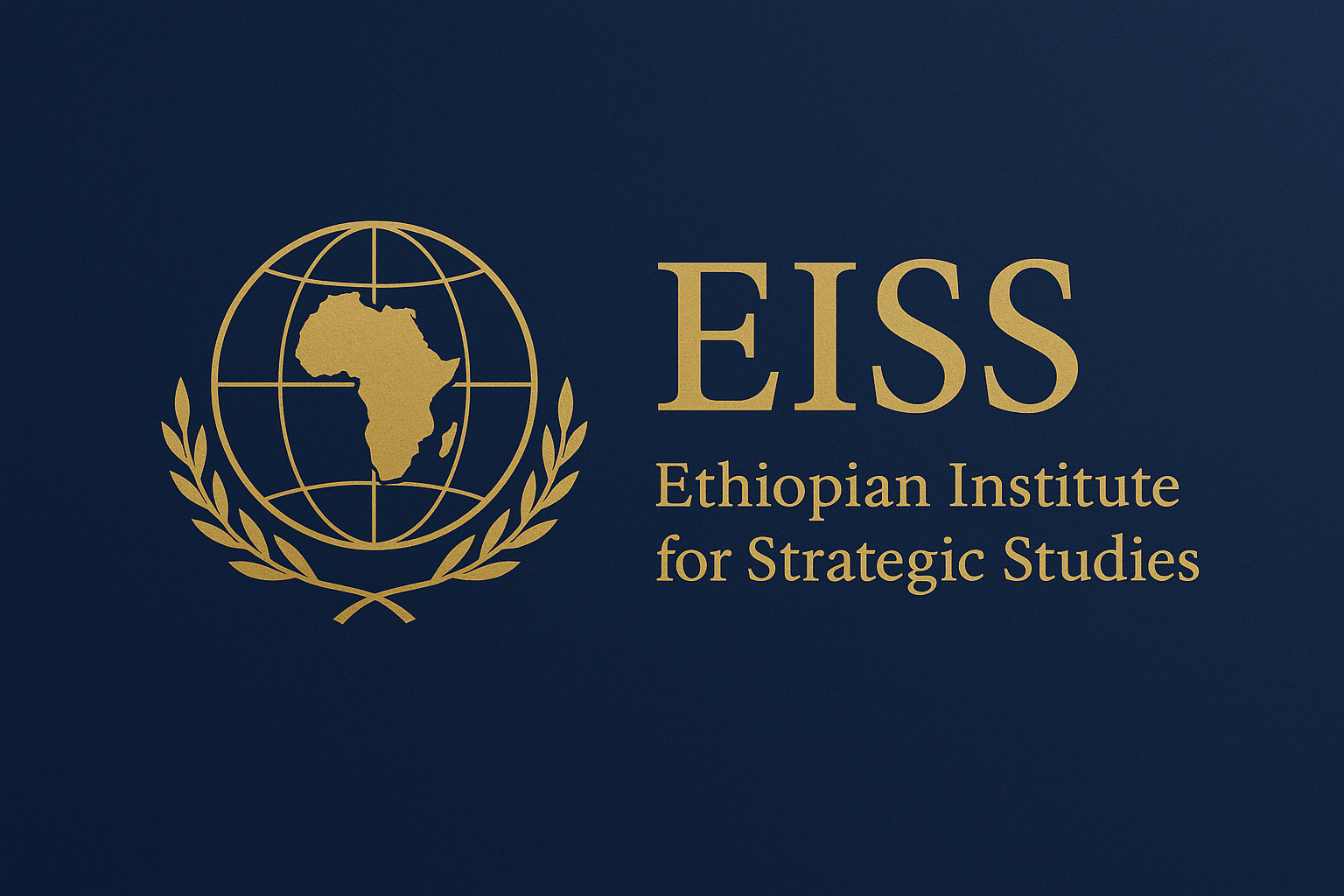The Ethiopian Institute for Strategic Studies (EISS) is a private, independent research organization dedicated to the objective study of Ethiopia’s national interests and its role within an evolving regional and global landscape.
Founded with the conviction that sound policy begins with sound analysis, the Institute brings together researchers, academics, and practitioners committed to advancing evidence-based dialogue on political, economic, and security issues that shape Ethiopia’s future.
Our independence and mission
EISS operates free from government or partisan influence. Its independence is central to its identity and purpose.
We believe that Ethiopia’s progress depends on open inquiry, responsible debate, and the ability to evaluate complex realities without external pressure.
Our mission is to provide reliable, non-political research that informs decision-makers, institutions, and the wider public. Through our publications, forums, and partnerships, we aim to promote strategic understanding and long-term thinking in national and regional affairs.
What we do
The Institute conducts policy research, publishes analytical papers, and hosts discussions on key issues affecting Ethiopia and the Horn of Africa.
Our work covers a wide range of themes, including:
-
Governance and institutional development
-
Regional integration and economic cooperation
-
Peace and security in the Horn of Africa
-
Natural resource management and environmental challenges
-
Foreign policy and diplomacy
-
Trade, investment, and technological transformation
Each study we produce seeks to bridge the gap between academic research and practical policymaking. We place equal importance on analytical depth and public accessibility, ensuring that our findings reach policymakers, journalists, educators, and citizens alike.
A platform for strategic thought
The Ethiopian Institute for Strategic Studies serves as a forum for new ideas — a space where researchers and experts can engage in open discussion.
We organize roundtables, seminars, and workshops that bring together voices from academia, government, business, and civil society.
These events are designed not only to share research but to create dialogue that can inspire tangible change.
We believe Ethiopia’s development challenges cannot be solved through slogans or short-term measures but through serious reflection and cooperation grounded in facts.
Regional and international outlook
While our focus is Ethiopia, our perspective is regional and global.
The Institute closely follows developments across the Horn of Africa, the Red Sea corridor, and the wider Middle East.
We analyze how shifts in trade routes, security alliances, and global energy transitions affect Ethiopia’s national interests.
EISS also maintains connections with scholars and institutions abroad, encouraging comparative studies and joint initiatives that enhance mutual understanding between Ethiopia and its partners.
In a world increasingly defined by uncertainty, Ethiopia’s strategic position demands independent voices capable of interpreting regional dynamics.
Our researchers continuously examine how international trends — from climate change to digital transformation — intersect with local realities and long-term national goals.
Research principles
Our work rests on three guiding principles: rigor, objectivity, and accessibility.
-
Rigor: Every study undergoes careful review and is supported by verified data, historical context, and transparent methodology.
-
Objectivity: We avoid ideological bias and maintain neutrality in assessing all political or economic actors.
-
Accessibility: Research must not remain confined to specialists. We summarize findings in plain language, so policymakers and citizens can make informed decisions.
By upholding these values, the Institute has earned a reputation for reliability and professionalism. Researchers and journalists often consult our analyses for perspective on Ethiopia’s strategic interests and regional affairs.
Building local capacity
Beyond producing reports, EISS also supports young researchers.
We offer mentorship opportunities, research internships, and academic collaboration with universities.
Our aim is to nurture a new generation of Ethiopian analysts capable of thinking critically and communicating ideas effectively.
Through capacity-building programs, we strengthen the foundations of independent research within the country.
Ethics and transparency
As an independent organization, we rely on transparent funding and ethical standards.
Our work is financed through project grants, institutional partnerships, and private contributions that do not compromise editorial freedom.
Every collaboration is evaluated to ensure it aligns with our mission and values.
We do not endorse political parties or take part in advocacy campaigns.
Our loyalty is to truth, accuracy, and the long-term interests of Ethiopia and the Horn of Africa.
Publications and dissemination
EISS publishes research papers, strategic briefs, and thematic reports throughout the year.
These publications provide context to fast-moving developments and highlight trends that may shape Ethiopia’s policy options.
Our content is distributed freely online to encourage learning and transparency.
We also summarize complex issues into shorter commentaries for readers who seek clear, accessible explanations without technical jargon.
Through consistent publication and engagement, the Institute has become a trusted point of reference for journalists, diplomats, and academics seeking informed analysis on Ethiopia’s regional position.
Vision for the future
The Ethiopian Institute for Strategic Studies envisions a society where policy decisions are informed by evidence rather than opinion, where long-term national interests take precedence over short-term gains, and where knowledge serves as a bridge between citizens and the state.
In the coming years, we aim to expand our network of collaborators across Africa and the Middle East, deepening research on emerging topics such as energy security, digital governance, and migration.
We also plan to strengthen partnerships with universities and research centers to enhance the credibility and impact of our work.
Conclusion
The Ethiopian Institute for Strategic Studies was created out of a belief that independent thought is a national resource.
In times of uncertainty, societies rely on institutions capable of offering clarity and perspective.
By combining academic precision with practical relevance, we seek to contribute to Ethiopia’s understanding of itself and its place in the world.
Our role is not to predict the future, but to prepare minds for it — through analysis, dialogue, and the steady pursuit of truth.





